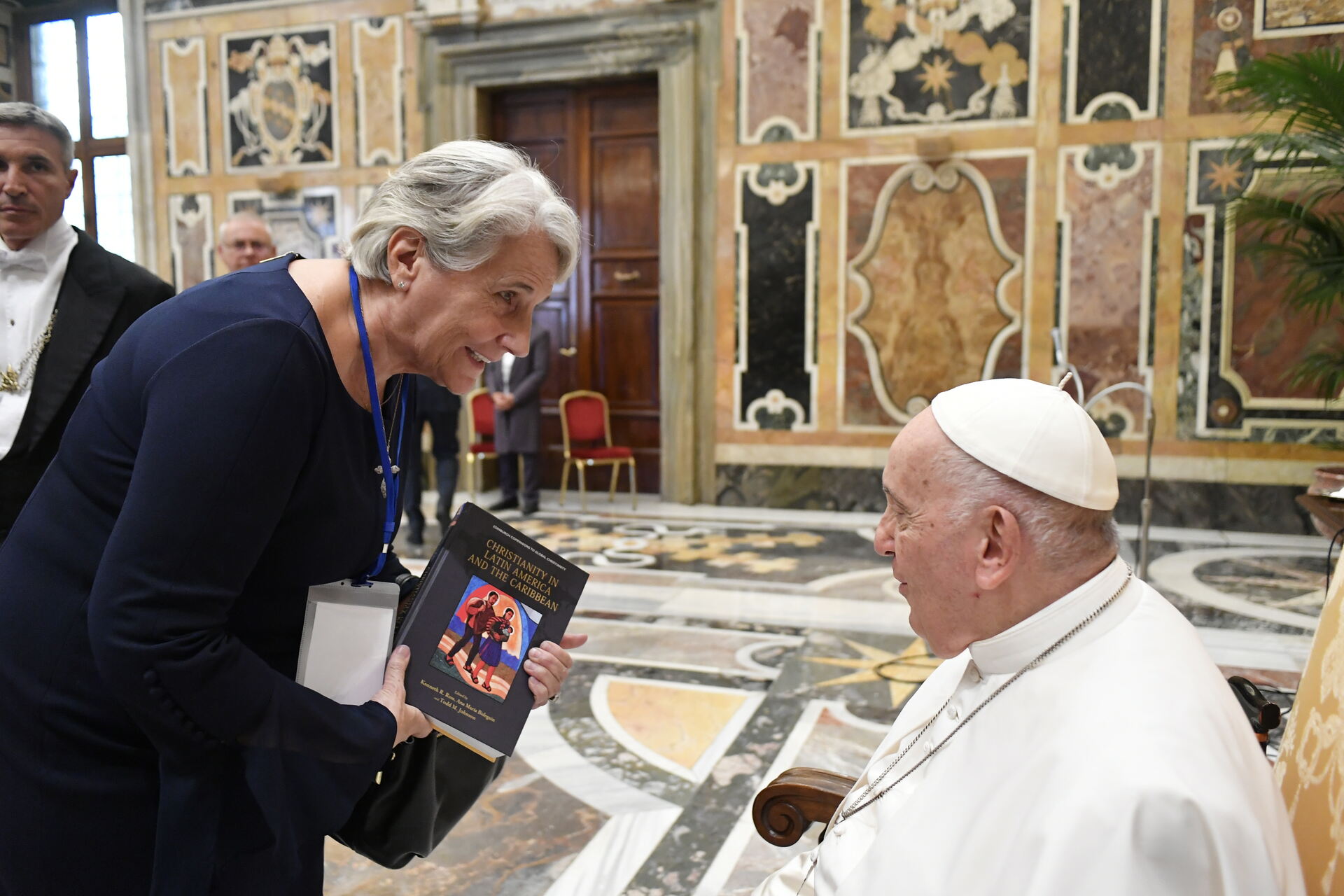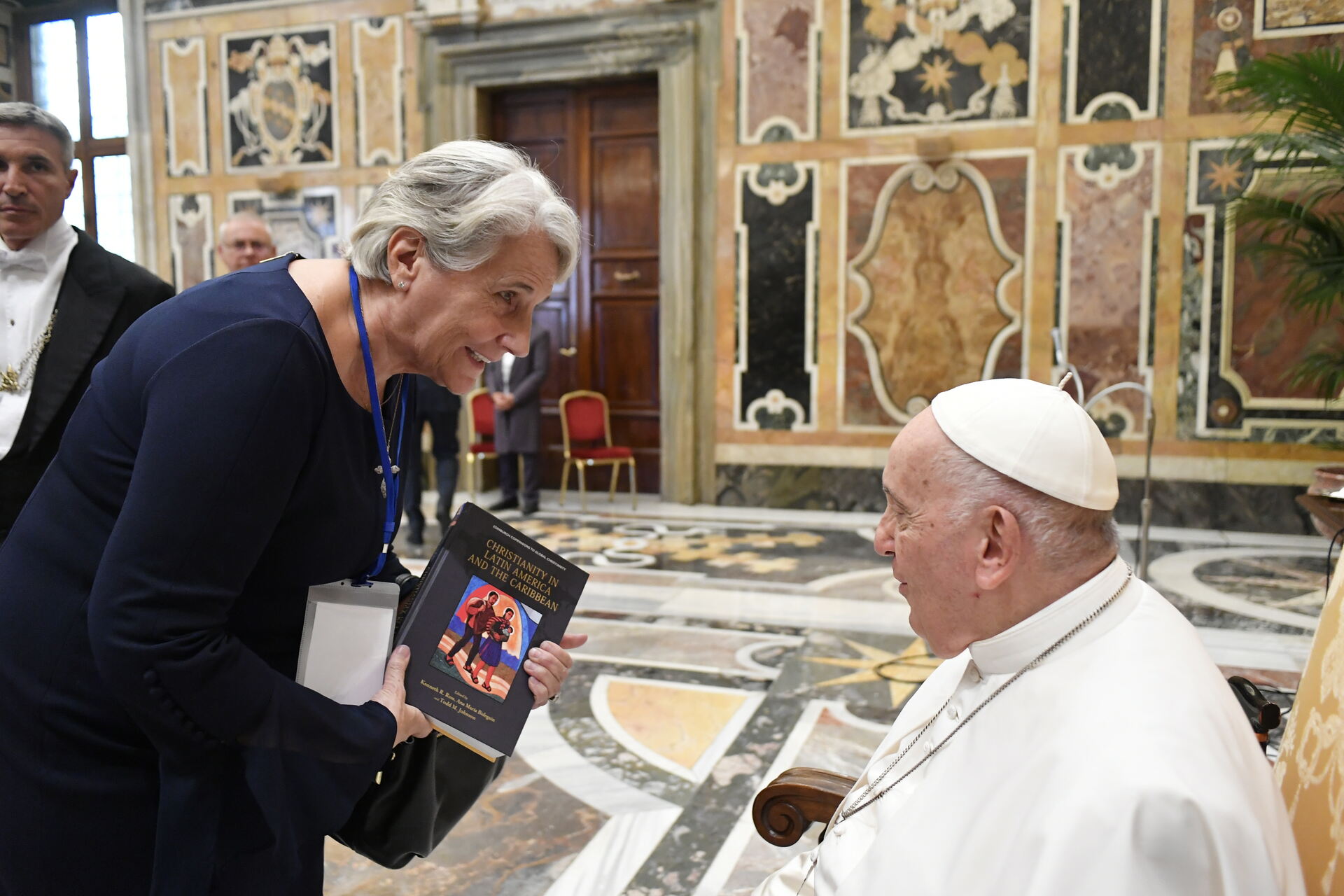Pope Francis's impact has been felt around the globe, transcending Christianity and sparking conversations within the Vatican never quite seen before. His progressive messages on interfaith dialogue and social justice created unique opportunities for students and faculty at the Steven J. Green School of International & Public Affairs, especially within the Latin American and Caribbean Interdisciplinary Initiative on Religion (LACIIR).
LACIIR is an interdisciplinary coalition of FIU faculty, graduate students and alums from several Green School departments that develops teaching, research and outreach activities concerning diverse religious expressions across Latin America, the Caribbean and among the Latino population in the U.S., and their interplay with sociocultural, political, economic, and local and global realities.
Throughout Francis’s 12-year papacy, LACIIR collaborated closely with Vatican initiatives. Its work has fostered the analysis and dissemination of many of his proposals, advancing the study of religion’s role in social and political life.
Early in Francis’s papacy, Ana María Bidegain, Religious Studies professor and Program Director for Research at the Kimberly Green Latin American and Caribbean Center (LACC), traveled to Rome to participate in an interreligious dialogue hosted by the Argentine institute IDIR, founded by Francis himself while Archbishop of Buenos Aires. Alongside a rabbi and an imam, she engaged in discussions that continue to inspire her scholarship, including a forthcoming Routledge publication on contemporary religious diversity in Latin America. “This work complements my previous book on Latin American Christianity, which I had the distinct honor of presenting to Pope Francis in Rome,” Bidegain shared.
In 2020, LACC hosted “The Care of the Common Home,” an international symposium inspired by Pope Francis's encyclical "Laudato Si" that welcomed Vatican officials and prominent leaders from across the Americas. LACIIR also participated in the production of another book that chronicles the lives and pastoral work of Latin American bishops who participated in the Second Vatican Council and were decisive in the 1968 Episcopal Conference in Medellin, which undoubtedly set a model for the Catholic Church that has been taken up and deepened by Francis. Most recently, the Green School supported faculty participation in a 2024 Rome meeting of Latin American universities focused on discussing collaborative efforts on issues such as poverty, migration and care of the environment, culminating in a private audience with Pope Francis.
The papal conclave began today, and there is much conversation and hope around the next pope continuing Francis's momentum in promoting interfaith relations. Whomever that is, LACIIR at the Green School remains steadfast in advancing dialogue, research and global initiatives that bridge faith, policy and social change.

